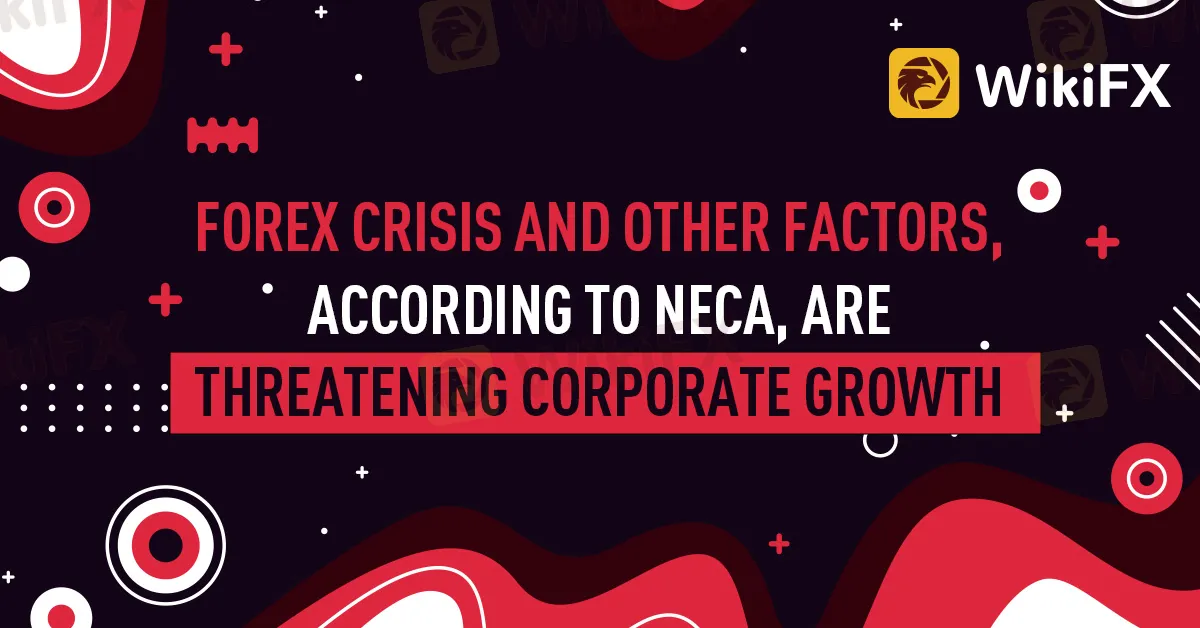简体中文
繁體中文
English
Pусский
日本語
ภาษาไทย
Tiếng Việt
Bahasa Indonesia
Español
हिन्दी
Filippiiniläinen
Français
Deutsch
Português
Türkçe
한국어
العربية
FOREX CRISIS AND OTHER FACTORS, ACCORDING TO NECA, ARE THREATENING CORPORATE GROWTH.
Abstract:According to the Nigeria Employers' Consultative Association (NECA), the country's industries are being negatively impacted by shrinking input and a lack of foreign currency.

According to the Nigeria Employers' Consultative Association (NECA), the country's industries are being negatively impacted by shrinking input and a lack of foreign currency.
Adewale Oyerinde, the Director-General of the Nigeria Employers' Consultative Association, stated during a recent media discussion in Lagos that for a firm to develop, it needs essential inputs in the form of raw materials, funding, and a stable environment.
He continued by saying that in order for businesses to prosper, there must be a welcoming regulatory environment.
Input has become a problem for most organizations, particularly in the manufacturing sector, he claimed. We must import inputs, and since importation requires foreign exchange, the lack of foreign exchange is a significant challenge. Even when foreign exchange is available, you cannot purchase from the official market.
He bemoaned, producers had to go to the black deals before they could get currency, paying twice as much as they had planned for production costs.
He observed that there was confusion surrounding monetary and fiscal policy since many institutions, particularly the apex bank and the ministry of finance, were giving opposing monetary and fiscal directives when they were meant to function in unison.
Oyerinde added that investors would avoid an unstable economy and environment with a wide range of risks.
An investor who wants to invest will search for a stable atmosphere. When such uncertainties arise, you start to second-guess whether you should invest or not, even though you can reasonably forecast that if I commit this to this project or firm, this will probably be the conclusion.
We consider it disruptive when CEOs are repeatedly called in for investigative tasks.
It leads to some instability and casts doubt on the much-touted separation of powers in our country. Because the National Assembly shouldn't get involved if the administration has the authority to take specific actions.
Our oversupply of foreign exchange is putting pressure on both the economy and the naira. Oil and gas are our main sources of foreign cash, and because of our low production levels, the amount of oil revenue we receive is relatively minimal. In our economy, big companies require foreign currency to conduct business. Thus, the problem is one of supply and demand.
Nigeria has one of the toughest business environments; starting and successfully operating a business here can test even the most seasoned businesspeople. The reality that businesses in Nigeria experience some of the toughest times anyplace in the world doesn't change just because the harshness is occasionally exaggerated and needs a little adjusting.
The impact of the Nigerian currency crisis ought to be limited in some economic sectors under normal circumstances. However, because Nigeria has a mostly unfavorable trade balance—we import more than we export—the cost of these imported resources influences commodities that are sold domestically in a roundabout way.
According to him, the business environment in the nation has been difficult, but the organized private sector anticipated that things would improve before enterprises succumbed to the difficulties they were facing.

Disclaimer:
The views in this article only represent the author's personal views, and do not constitute investment advice on this platform. This platform does not guarantee the accuracy, completeness and timeliness of the information in the article, and will not be liable for any loss caused by the use of or reliance on the information in the article.
Read more

March Oil Production Declines: How Is the Market Reacting?
Oil production cuts in March are reshaping the market. Traders are closely watching OPEC+ decisions and supply disruptions, which could impact prices and future production strategies.

How to Calculate Leverage and Margin in the Forex Market
Leverage amplifies both potential profits and risks. Understanding how to calculate leverage and margin helps traders manage risks and avoid forced liquidation.

USD/INR, USD/PHP Forecast April 2025
The global forex markets are bracing for April 2025 with divergent forecasts for key emerging market pairs. In particular, the USD/INR and USD/PHP pairs have attracted significant attention amid a mix of central bank interventions, evolving U.S. policy signals, and regional economic shifts. In this article, we review multiple forecasts, examine the driving factors, and outline what traders might expect as the month unfolds.

April Forex Trends: EUR/USD, GBP/USD, USD/JPY, AUD/USD, USD/CAD Insights
Know April’s forex seasonality trends for EUR/USD, GBP/USD, USD/JPY, AUD/USD, and USD/CAD. Historical insights and key levels to watch in 2025.
WikiFX Broker
Latest News
Exposing the Top 5 Scam Brokers of March 2025: A Closer Look by WikiFX
Gold Prices Climb Again – Have Investors Seized the Opportunity?
Webull Launches SMSF Investment Platform with Zero Fees
Australian Regulator Warns of Money Laundering and Fraud Risks in Crypto ATMs
The Withdrawal Trap: How Scam Brokers Lure Victims into Paying More
FCA to Investors: Think Twice Before Trusting These Brokers
Trump\s tariffs: How could they affect the UK and your money
Trump gambles it all on global tariffs he\s wanted for decades
HTFX Spreads Joy During Eid Charity Event in Jakarta
How Will the Market React at a Crucial Turning Point?
Currency Calculator








